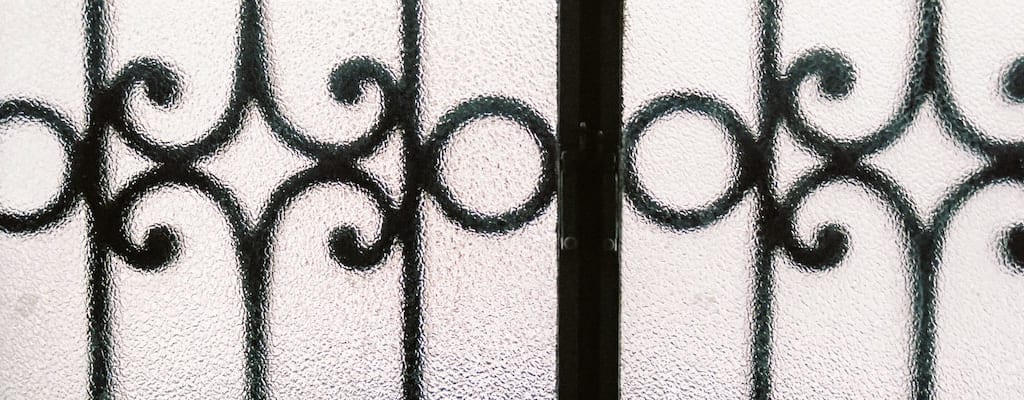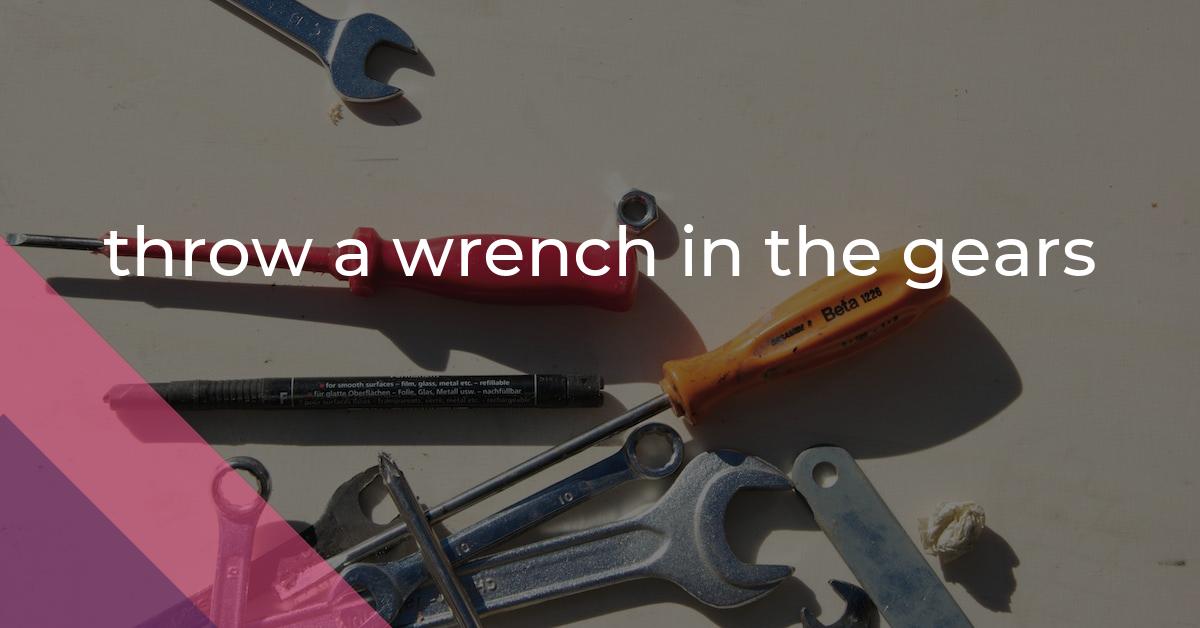throw a wrench in the gears: Idiom Meaning and Origin
What does ‘throw a wrench in the gears’ mean?
The idiom "throw a wrench in the gears" means to create a problem or obstacle that disrupts a smooth flow or plan.

Idiom Explorer
The idiom "wheels are turning" means that progress or action is happening, often in a slow or deliberate manner.
The idiom "upset the applecart" means to disrupt or spoil a carefully planned or established situation, often resulting in chaos or disorder.
The idiom "turn the screw" means to apply pressure or increase the intensity of a situation or demand in order to get a desired outcome or result.
The idiom "throw off balance" means to make someone feel uncertain or confused, disrupting their usual state of composure or stability.
The idiom "throw cold water on" means to discourage or dampen enthusiasm for an idea or plan.
The idiom "throw a wrench in the works" means to cause a disruption or problem in a plan or process, making it difficult or impossible to continue smoothly.
An idiom meaning to disrupt or interfere with a process, plan, or situation, usually causing it to go off track or fail.
The idiom "throw a spanner in the works" means to intentionally disrupt or interfere with a process or plan, causing problems or preventing success.
The idiom "throw a monkey wrench into the works" means to disrupt or interfere with a process or plan, causing it to fail or become more complicated.
Uncovering Chaos
Throwing a wrench in the works, or as it is more commonly known, "throwing a monkey wrench into the works", is an idiomatic expression that is closely related to the phrase "throw a wrench in the gears." Both idioms share the common theme of disrupting or hindering progress or success. The primary difference between the two is the addition of the word "monkey" in the former idiom, which is used to emphasize the unexpected and often chaotic nature of the disruption.
The phrase "throw a monkey wrench into the works" originated in the United States and is believed to have first appeared in the early 20th century. Its exact origins are uncertain, but it is thought to have emerged from the influence of British and American industrial workers who used similar idioms involving tools and machinery. The addition of the word "monkey" in this idiom serves to heighten the sense of havoc and chaos caused by the disruption.
The idiom "throw a monkey wrench in the works" has become a widely used expression to describe any action or event that unexpectedly derails or obstructs a plan or project. It conveys the idea of an unforeseen complication or obstacle that can significantly impact the outcome and progress of a situation.
Similarly, the phrase "throw a spanner in the works" is another idiomatic expression that shares a similar meaning to "throw a wrench in the gears." The main difference between the two is the use of the word "spanner," which is a British term for a wrench. This idiom is primarily used in British English and is less commonly used in American English.
Example usage
Examples of how the idiom "throw a wrench in the gears" can be used in a sentence:
- She forgot to bring her laptop to the meeting, which really threw a wrench in the gears of our presentation.
- The sudden change in schedule really threw a wrench in the gears of our travel plans.
- When the power went out, it threw a wrench in the gears of our production process.
More "Obstacles" idioms



